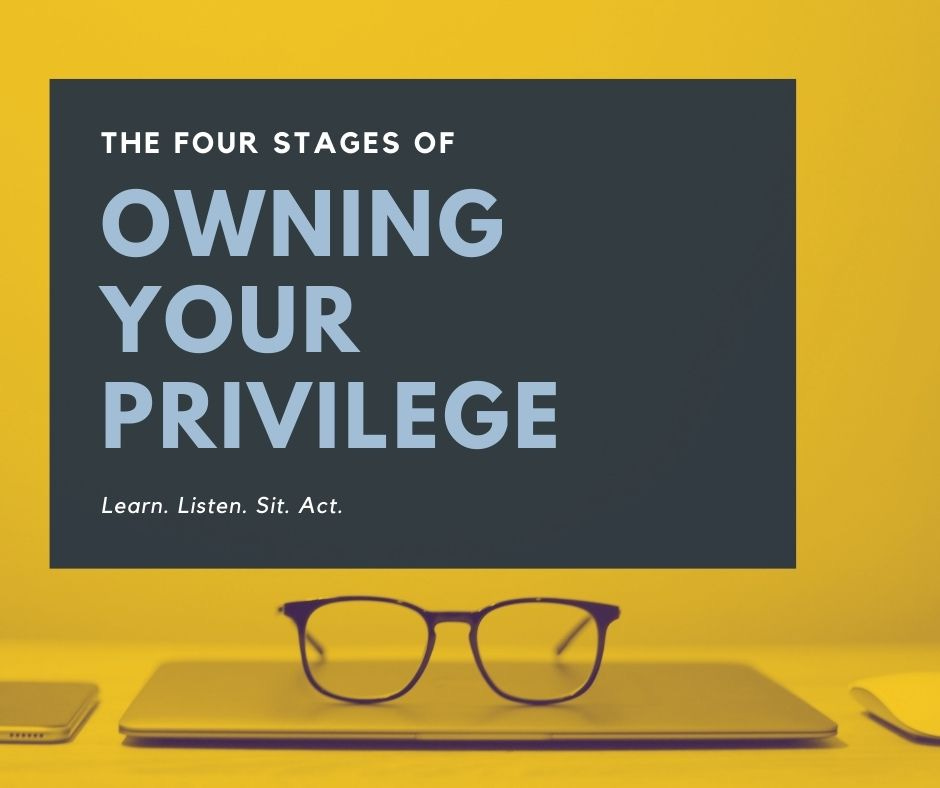Four Stages of Owning Your Privilege
If you've got privilege, have you learned about it? Listened to others? And sat with it before moving to action?
Last week I wrote about the Glasses of Privilege. The main idea was to imagine that each of us, when we’re born, through a combination of nature (our biology, our ethnicity, our personality, etc) and




